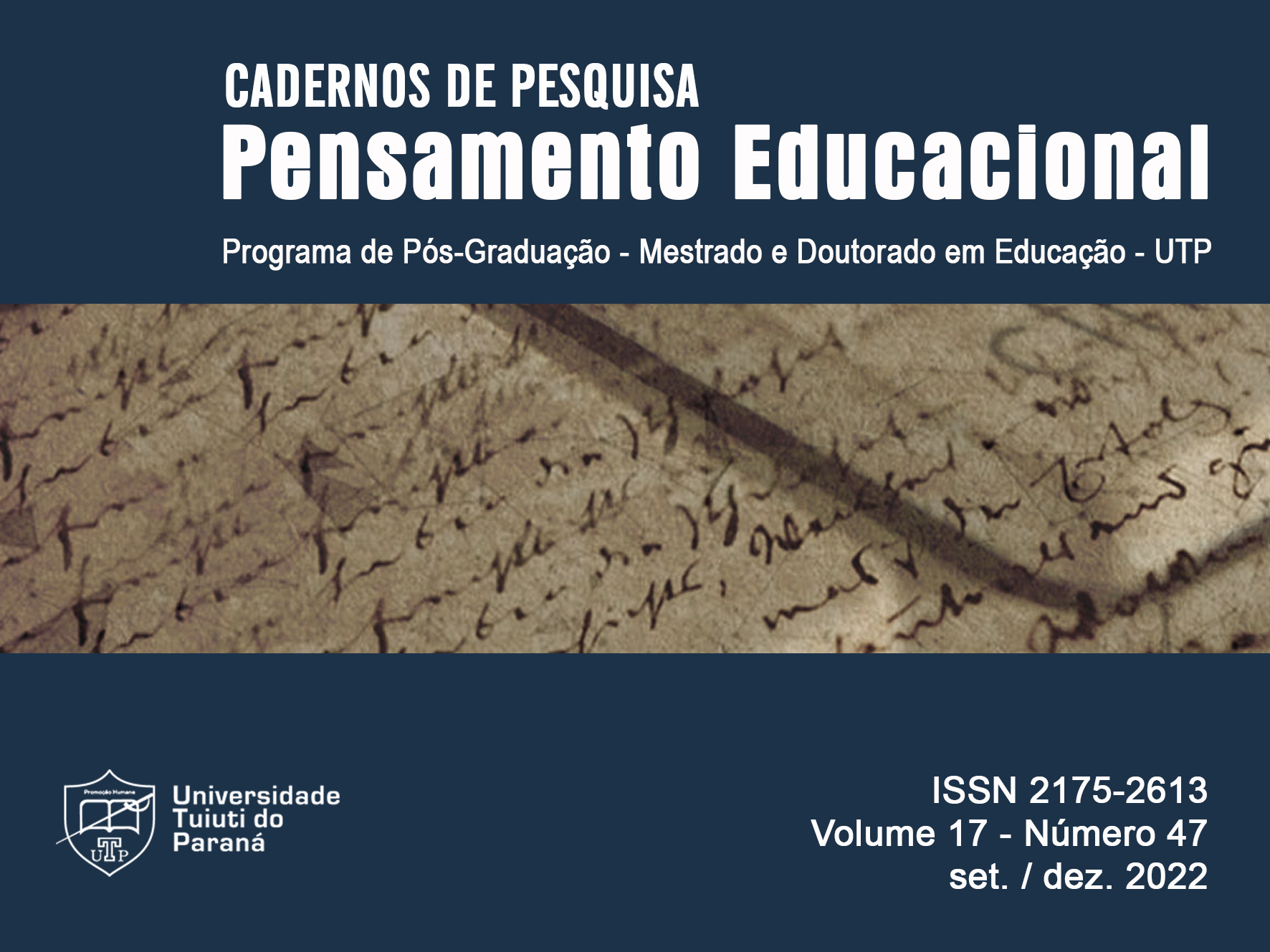A Implementação da lei 10.639/2003 em escolas estaduais de Minas Gerais: dois estudos de caso
Resumo
O artigo analisa o processo de implementação da política de ensino de história e cultura afro-brasileira (lei 10.639/2003) suas dificuldades e seus determinantes a partir do caso de duas escolas da rede estadual em Minas Gerais. Deseja-se compreender como a implementação de uma política pública pode ser afetada a depender do contexto em que é desenvolvida. Realizou-se entrevistas com atores da Secretaria de Estado de Educação, de duas Superintendências Regionais de Ensino e de duas escolas. E utilizou-se relatórios do programa Afroconsciência e Planos Plurianuais de Ação Governamental. O marco teórico centrou-se no modelo de implementação de adaptação mútua de McLaughlin e Berman (1975) e nas características da cultura escolar de Thurler (2001). A partir da teoria, foram definidas e analisadas treze variáveis envolvendo as dimensões macro e micro que se relacionam no âmbito da implementação. A dimensão macro, é composta pelas diretrizes e ações da secretaria de educação e das regionais, enquanto a dimensão micro pelas diretrizes e ações das escolas e da comunidade escolar local. Como resultado da pesquisa, a política foi identificada como fragilizada no nível macro, com necessidade de ser institucionalizada, além de se constatar que as entidades governamentais pouco prezam pela implementação adaptativa. No nível micro, para os dois casos analisados, a política encontra-se mais fortalecida e há um esforço para se realizar a implementação adaptativa. Conclui-se que o governo estadual precisa priorizar essa política educacional, dando mais atenção às especificidades locais, caso queira realizar uma implementação efetiva e contribuir para o combate ao racismo.
Copyright (c) 2022 Gabriela Carvalho Guimarães Carneiro, Bruno Lazzarotti Diniz Costa

This work is licensed under a Creative Commons Attribution-NonCommercial 4.0 International License.
- Autores mantém os direitos autorais e concedem à revista o direito de primeira publicação, com o trabalho simultaneamente licenciado sob a Licença Creative Commons* que permite o compartilhamento do trabalho com reconhecimento da autoria e publicação inicial nesta revista.
- Autores têm autorização para assumir contratos adicionais separadamente, para distribuição não-exclusiva da versão do trabalho publicada nesta revista (ex.: publicar em repositório institucional ou como capítulo de livro), com reconhecimento de autoria e publicação inicial nesta revista.
- Autores têm permissão e são estimulados a publicar e distribuir seu trabalho online (ex.: em repositórios institucionais ou na sua página pessoal) a qualquer ponto antes ou durante o processo editorial, já que isso pode gerar alterações produtivas, bem como aumentar o impacto e a citação do trabalho publicado (Veja O Efeito do Acesso Livre).
- Esta revista proporciona acesso público a todo o seu conteúdo, uma vez que isso permite uma maior visibilidade e alcance dos artigos e resenhas publicados. Para maiores informações sobre esta abordagem, visite Public Knowledge Project.

*Esta obra está licenciado com uma Licença Creative Commons Atribuição-NãoComercial 4.0 Internacional.


